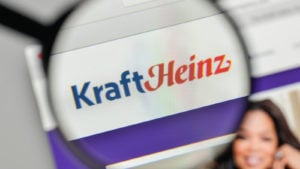As earnings season winds down, the long-awaited shift from growth to value seems to be emerging. Many tech stocks are down despite good earnings as investors hunt for bargains. That’s a good reason to explore undervalued stocks under $50.
To begin with, investors like stocks under $50 because they can make a small investment go further. But, there’s a difference between price and value. Some stocks under $50 don’t have much upside left for investors. And if they don’t pay a dividend, you can find better options.
But that leads to another reason to look for undervalued stocks under $50. A little price movement can mean a greater return. For example, if the stock price of McDonald’s (NYSE:MCD) goes up $2, that’s less than 1% of the share price. But that same movement in a stock trading for $30 is a 7% gain.
So, without further adieu, let’s look at some undervalued stocks that give investors good reason to believe they’ll outperform as investors hunt for value.
Palantir (PLTR)

Palantir (NYSE:PLTR) is a polarizing stock. It also happens to be crushing it, according to its CEO, Alex Karp. Objectively, Karp’s not wrong. By virtually any measure, Palantir delivered a sterling first-quarter earnings report. The one hiccup was that full-year revenue guidance came in lighter than expected.
Is that a reason for the 16% drop in the PLTR stock price after the earnings report? Not by itself, but the stock is objectively overvalued. And the company was coming off several quarters of year-over-year (YoY) growth that was going to be tough to repeat.
Palantir is a battle between short-term traders and long-term true believers. The traders have won the week after earnings, but the long-term narrative, which centers around AI, is still being written.
Dan Ives of Wedbush reiterated his Overweight rating on PLTR stock with a price target of $35. Ives has called Palantir the “Messi of AI,” which would seem to refute other claims that the company is an AI impostor. For what it’s worth, Cathie Wood bought PLTR stock heavily after the post-earnings sell-off.
DraftKings (DKNG)

As of this writing, DraftKings (NASDAQ:DKNG) is trading at $44.03. That’s after DKNG stock soared 77% in the last 12 months. And with the stock up 27% in 2024, DraftKings may not be one of the undervalued stocks under $50 much longer. That’s particularly true if the company manages to become profitable (in terms of adjustable EBITDA) sometime in 2024.
In 2023, DraftKings generated $3.67 billion in revenue. That was about 18% of the $20 billion addressable market. DraftKings expects that number to jump to $30 billion by 2028, with an important caveat. That’s for the states in which online sports betting already exists.
Of course, it’s certainly more likely than not that online sports betting will be legalized in several other states, including Texas and California, two of the holdouts prized by sports betting investors. If that’s the case, the addressable market will be significantly larger.
Yes, this is a competitive market. But it’s also a market in which 47% of users acknowledge using more than one sports betting app. That statement can cut both ways. But DraftKings has a significant first-mover advantage and, therefore, is top of mind for many sports betters.
Kinder Morgan (KMI)

Kinder Morgan (NYSE:KMI) is a midstream energy company that owns one of the largest networks of pipelines that move oil and natural gas around the United States and Canada. The company’s stock is up 7.4% in 2024 and has held the gains despite a first-quarter earnings report in which it missed the top line and delivered in-line earnings.
That could be because analysts are looking at where demand may be coming from. According to Kinder Morgan, that demand will come from data centers, which run 24 hours a day, 7 days a week and will need as much natural gas as the company can provide — especially as more AI applications come online.
For now, analysts maintain a consensus rating of Hold on KMI stock with a price target that’s only 6% above the current price. But that may not reflect the increasing demand. Plus, Kinder Morgan pays a dividend with a current yield of 6.03%. That percentage can keep you ahead of inflation just by owning the stock.
Bank of America (BAC)

Warren Buffett has been in the news recently for what he’s been buying and selling. However, you can put Bank of America (NYSE:BAC) on the list of stocks that Buffett continues to hold tightly.
That shouldn’t be too quickly overlooked, considering BAC is one of only a few bank stocks that Buffett holds. As of this writing, Berkshire-Hathaway (NYSE:BRK-A, NYSE:BRK-B) owns 13.2% of the bank worth $39 billion.
If you were looking for bank stocks last March, BAC stock would have been one to buy. The “big banks” offered financial stability when the banking sector was feeling the stress of high interest rates. To be fair, BofA was feeling stress from a higher cost of capital, a declining net interest margin and more net charge-offs.
Interest rates will likely remain at their current level through summer. But 32.5% of investors believe a rate cut may be coming in July. That percentage goes up to 49.1% in September. With earnings expected to grow at 7.7% and trading at around 11x forward earnings, Bank of America is one to own when rates come down.
Kraft Heinz (KHC)

If one Warren Buffett stock is good, two may be better. For some skeptics, that’s the best case to make for Kraft Heinz (NASDAQ:KHC). The company has struggles that go beyond inflation and supply chain concerns. Consumer tastes are changing, and Kraft Heinz products don’t offer the health benefits or sustainability that many consumers are looking for in 2024 and beyond.
Those concerns are easily seen in the company’s revenue and earnings, which can be described as one quarter forward and then two quarters back. It can also be seen in the KHC stock price, down 12.1% in the last 12 months and only up 10.6% in the last five years. A growth stock, KHC is not.
But this article is about value stocks. And that’s where KHC stock shines. It trades around 11x earnings and pays a high-yield dividend, with a 4.48% yield.
Verizon Communications (VZ)

If Kraft Heinz doesn’t scratch your high-yield dividend stock itch, perhaps Verizon Communications (NYSE:VZ) will. The wireless business model isn’t exciting, but it pays to be the market share leader, which is what Verizon is.
Still, in 2023, the company’s overall income from its wireless services climbed 3.3%. And the company believes the addition of AI technology will not only help streamline internal operations but delight consumers as well.
Over the last five years, VZ stock dropped 30%, but investors have been treated a little better in the last 12 months, with the stock up about 5%. However, in each of those five years, shareholders have received a dividend. In fact, Verizon has increased its dividend for 19 consecutive years and currently has a yield of 6.69%.
If you’re looking for growth, there are better options. But if you’re looking for income and value, Verizon is about as solid as they come and an easy choice when considering undervalued stocks under $50.
DigitalBridge (DBRG)

DigitalBridge (NYSE:DBRG) is a real estate investment trust (REIT) specializing in digital infrastructure assets. That means data centers, cell towers and edge infrastructure. The increased demand for AI sent DigitalBridge’s stock soaring while other REITs struggled in 2023.
As Louis Navellier wrote on InvestorPlace, “To operate generative AI applications, it will be important to access and connect cloud environments to manage the complex computations that generative AI demands.”
Granted, the case for DBRG stock as one of the undervalued stocks under $50 was more appealing at the beginning of the year when rate cuts appeared to be around the corner, no matter how unlikely. The stock has dropped 21.4% in the last month as investors became resigned to higher-for-longer rates.
But even if there are no interest rate cuts in 2024, demand for digital infrastructure will remain consistent. So, when you see the forecasts for 60% earnings growth in the next 12 months, it’s easy to believe.
On the date of publication, Chris Markoch had a long position in PLTR. The opinions expressed in this article are those of the writer, subject to the InvestorPlace.com Publishing Guidelines.
